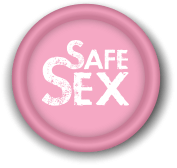Phobia is defined as an irrational or obsessive fear or anxiety, usually about something specific. This condition can take over a person’s life, interfere with the normal course of relationships and lead to a significant decrease in the quality of life and physical and mental health.
AIDS phobia is defined as the fear of contracting HIV or the fear you have already contracted the virus.
The phobia is manifested even without any evidence that an infection has occurred or even in the case of conclusive evidence that no infection has occurred. The scientific facts are not enough to calm the phobia. It is irrational and no rational means can solve it. In some cases, when it is a fear of a specific infection, or a particular case, it can be solved relatively easily but in most cases when the phobia is provoked, it cannot be treated without targeted professional intervention.
Manifestations of AIDS phobia
The first, people who are convinced that they have been infected, despite going through tests showing that they have not been infected, despite explanations from doctors and professionals, and sometimes even without any incident that might pose a possibility of infection.
Second, the phobia appears as a constant fear of infection. People who believe in medical testing, however, feel that at any given moment they are prone to infection and cannot live their lives quietly due to thoughts of infection. Such thoughts get to the point where people fear that they have contracted HIV from a needle while testing for HIV. These people are in fact in a vicious circle that they cannot break.
Despite the fact that nothing soothes the concerns, people who suffer from the phobia may spend long hours on the Internet searching for evidence that their concerns and doubts are justified, often they find the answers on websites where the information is unfounded or out of date.
Some of those people who are defined as suffering from AIDS phobia are diagnosed with OCD (Obsessive-Compulsive Disorder) which is expressed in recurring thoughts that circle around the ways in which HIV can be contracted. These thoughts may lead to significant behavioral changes in the attempt of avoiding potential exposure. They see the danger of infection everywhere and the thoughts gain a monopoly on consciousness.
Some people with AIDS phobia will do their best to avoid contracting HIV even if their behavior does not make sense. For example, they may think that any contact with another person endangers them, especially if they see a scratch or wound on themselves or the other person. They may also completely avoid sexual contact or use pseudo-medical remedies that may even endanger them.
The reason AIDS phobia develops
The reason why people develop various phobias is not entirely clear. Some mental health experts believe that the tendency to develop phobias has a genetic basis, while other experts believe that phobias develop as a result of adverse experiences and life events. For example, fear of water can result from getting to know a person who has drowned. In the same way, a person can develop AIDS phobia if he or she has an acquaintance who suffered from the disease or died from it.
Another common cause is a feeling of guilt after an act that the person perceives as improper. Usually it is a sexual encounter that the person regrets, such as infidelity, consumption of prostitution, homosexual intercourse and more. Because these circumstances not only expose the person to sexually transmitted diseases including HIV, but also put them at risk of explaining how they got infected, which increases the anxiety.
In the case of anxiety that stems from remorse, in the perception of people suffering from AIDS phobia, HIV is an inevitable result of their wrongdoing. They may feel that HIV is a kind of punishment for the “crime” they have committed and the guilt they are experiencing is logical and justified.
Often, a person’s cultural background plays an important role in AIDS phobia. Education, the immediate environment, religious influences and social experiences, all of these can increase the stigmatized perception of morality. Thus when a person perceives his actions as immoral he punishes himself.
Treatment of AIDS phobia
Those who suffer from phobia sometimes find it effective to sit down with a doctor and get a detailed explanation of how the disease can be contracted. They can go from doctor to doctor and hear the same information over and over again with the thought that it will calm them down. This information (which is sometimes also obtained from the internet) may give relief in some cases, however, it does not hold. Soon another question, another scenario will emerge, and the person will return to feeling anxieties and restlessness.
To treat phobias one has to get to the root of the problem. Most often, the phobia itself has nothing to do with HIV.
People suffering from AIDS phobia are often treated with a combination of psychotherapy and medication. Consulting a skilled mental health professional can help diagnose and find a solution.
Treatment can include individual therapy, group therapy or family counseling. As well as, medication after diagnosis of anxiety.
If you or a close one suffer from AIDS phobia, you can seek advice from the Levinski Clinic, various HIV clinics and specialists who treat obsessive-compulsive disorder (OCD).
